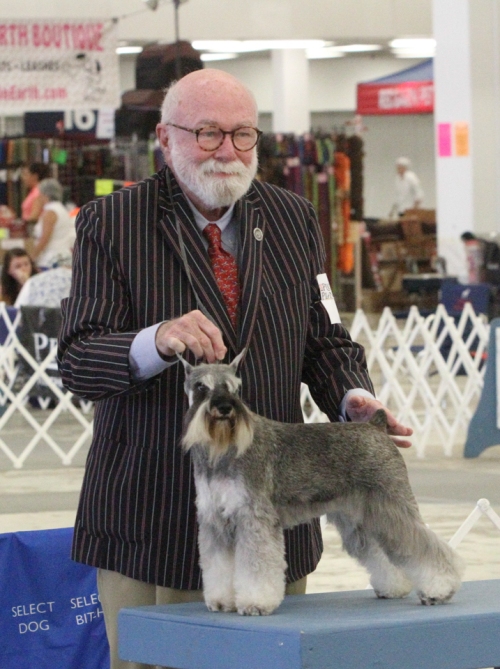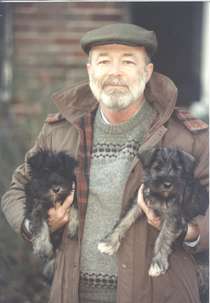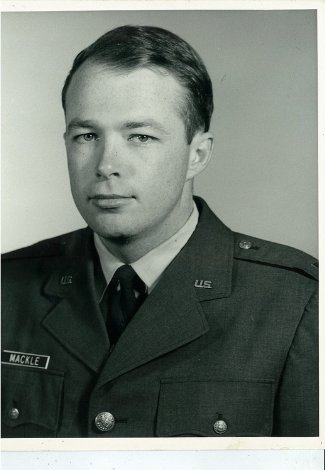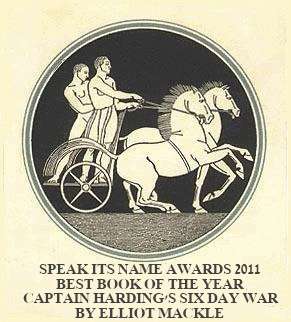In the days of his privileged youth in Florida, Elliott Mackle 77PhD knew some thoughts were better left unspoken. Ladies and gentlemen did not talk of sexual preferences, nor did they advertise their private pursuits. Though today’s social climate is markedly different, “Being gay is still not talked about much in polite society. But before the 70s, it wasn’t talked about – ever.”
Mackle, a career writer and Vietnam-era Air Force captain, is penning his life story with just this theme. A journey through the decades, the book will examine the changing perspectives of those around him – the initial secrecy, the early attempts at societal inclusion, the quiet and not-so-quiet protests, and eventually the acknowledgement of the rights of LGBTQ individuals in America.
From his influential platform as a prominent columnist, Mackle played a pivotal role in bringing about such important societal change on and off the campus of Emory University.
Finding his Voice – and Sharing His Love of Food
As a 14-year-old, Mackle needed release from daily stress. “My family was wealthy, powerful, and extremely dysfunctional,” he recalls. “I began writing to make sense of what was going on.” He got through high school and attended Vanderbilt University where he met his first mentor. To this point, praise for his writing was scarce. As a freshman he earned constructive criticism that shaped his ambition. On his first paper the instructor commented, “You can write. You’re not doing it here but you can do it.” Mackle accepted the gauntlet he’d been thrown, competed, and won the coveted freshman writing prize. “He coached me. Taught me to rewrite. I dedicated my first novel to him.”
Military service in Italy, Libya, and California taught Mackle to run mess halls, bakeries, and other food establishments serving up to 2000 meals a day. At Beale Air Force Base, in California, the commander asked Mackle to write a column for the base newspaper about social events, personnel changes and the like. “It was a great starting point,” he recalls. “I got used to writing regularly for other people to read.”
After completing military service, and earning a doctorate in American Studies in Emory’s Institute of Liberal Arts, Mackle accepted a writing role with the State Department of Education at a time when providing proper nutrition was just coming to the forefront of school administration. With his background in volume feeding, his expertise was prized. “They could see that ‘ketchup as a vegetable’ was coming, and our job was to educate families about better choices.”
After New York Times food editor Craig Claiborne began reviewing restaurants, a trend emerged and quickly spread. People wanted to read more and more about fine dining as well as less formal fare. A bit later, while Mackle was working for the state, the popular magazine Brown’s Guide to Georgia held a contest seeking a second restaurant reviewer – and Mackle won top honors.
In short order, Creative Loafing offered Mackle a regular food column. He began to sell freelance articles to the Atlanta Journal-Constitution, Travel and Leisure, Food and Wine and other esteemed magazines. Eventually, the restaurant reviewing slot at the AJC opened up. Mackle applied and was invited to report and submit a sample review. The deal was sealed when the features editor invited Mackle to share a meal. Instead of choosing a fancy Buckhead establishment, Mackle opted for a classic – Deacon Burton’s Soul Food restaurant in the Old Forth Ward where hoe cakes and fried chicken were on the menu. “The meal was nothing pretentious – just real,” he says of that pivotal meeting. “The editor handed me back my copy with ‘Bravo’ penciled across the top. He created the title ‘Dining Critic’ for my regular reviews and columns in the AJC.
In – or Way Out in the Press?
“I was not hired to be a gay columnist,” he says. Mackle worked with people who were gay, though few talked openly about it. One story assignment changed his public life.
At the beginning of the HIV/AIDS epidemic, Project Open Hand Atlanta invited him to help promote a local edition of a new venture that had been founded in San Francisco to provide meals to people living with the disease. “Open Hand helps people prevent or better manage chronic disease through Comprehensive Nutrition Care™,” the organization states, “which combines home-delivered meals and nutrition education as a means to reinforce the connection between informed food choices and improved quality of life.” Mackle worked the program for a week and wrote about it as a full feature. Without quite realizing it, Mackle had told his readers that he was a gay man. A top editor commented that he’d “come out in the paper.”
At this critical professional juncture, Mackle faced a choice. Retreat to neutral ground, or realize the potential in his hands. “Because I was a known figure, I knew there was value in saying I am gay,” he says. “People used to say, ‘I don’t know any gay people.” To that I’d say, ‘You sure do. You’ve been reading me for ten years.’” For the first time, Mackle “felt free to talk about my life in public.”
The AJC backed Mackle’s efforts and put their sponsorship and publicity behind his work at Project Open Hand. “For a fund-raising luncheon featuring Julia Child and Nathalie Dupree, once the paper got involved, donations went through the roof,” he says. “The power was given to me to be an instrument of good for the LGBTQ community.”
Continuing his work to shed light on LGBTQ lifestyles, in recent years, Mackle has embraced oft-taboo subjects as an award-winning mystery novelist of such classics as It Takes Two, Captain Harding and His Men, and most recently Sunset Island (the third in the Caloosa Club Mysteries series). To learn more about Mackle’s work, please visit here.
In Praise of GALA
After earning his PhD with a dissertation on the creation of the image of Florida, Mackle observed and took part in transformative events. “One turning point came in 1992, with the founding of the Office of LGBT Life. The other happened in 1997 when two men were granted the right to hold a commitment ceremony at the Oxford Chapel,” he says. Mackle credits the Emory Alumni Board (then called the Board of Governors) for paving the way for such early progress. “These events made us visible in a way that couldn’t be ignored.”
A founding co-chair of GALA, Mackle reflects on the contribution the organization has made to Emory’s culture. “GALA is good for people and it is good for the university,” he says. “If someone is scared, whether a cafeteria worker, a first-year student or a closeted professor, GALA is there for them. This is the Emory family.”

Author Elliott Mackle 77 PhD is more than just a great writer: he is a passionate dog lover who earned top national competition prizes for his miniature schnauzers. Shown here is Grand Champion Orleans’ Viennese Sachertorte. “Her call name is Sugar. We were named Select Bitch, meaning second best female in the breed, in the AKC/Eukanuba National Championship show in Orlando in 2012.”
–Michelle Valigursky





A wonderful recap of the life of an amazing soul!
LikeLike
This piece is an excellent tribute to Elliott who has earned a nice tribute.
_____
LikeLike